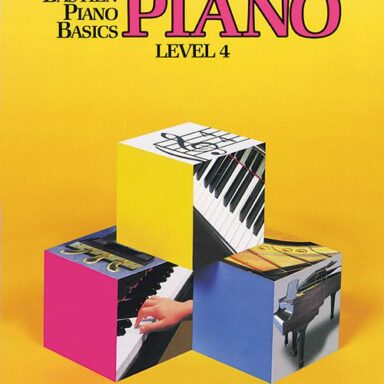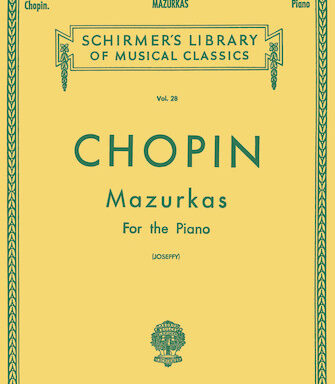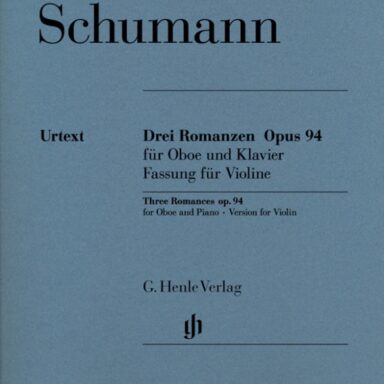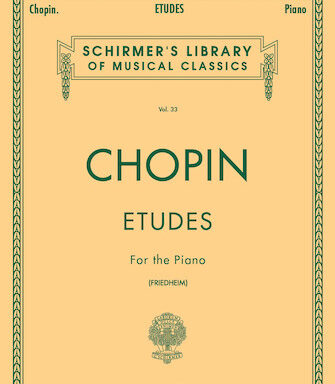No hay productos en tu pedido

Lieders sobre textos de Goethe
Sin existencias
Categorías: Instrumentos y voz, Lieder, arias y canciones, Música vocal, Partituras y Métodos, Schubert, Franz, Voz, Voz y piano (u órgano)
Editorial: Dover [AP]
Solicita una cotización
Descripción
Goethe failed to appreciate the songs which would link his poems to musical immortality. Schubert’s tonal innovations and passionate insight into the great lyrics disconcerted the poet, but brought Schubert fame as master composer long before public recognition of his symphonies.
The prolific Schubert (over 600 songs in 10 years) was inspired by Goethe’s verse as a prodigious young songwriter («Gretchen am Spinnrade,» his first masterpiece, was set at age 17) and stayed with the poems all his short life. The new edition includes all his versions for every lied to Goethe texts from the standard Breitkopf and Härtel complete-score edition of 1884–97. Eight-four songs (55 poems with 29 later versions) comprise this reading and playing edition, with modern literal prose translations of the poems by Stanley Appelbaum. No other one-volume edition of the famous songs is available; this volume offers authoritative complete scores, handsomely set with wide margins and strong binding, in a careful, accurate rendering of Goethe, at a price accessible to musicians, students, and all lovers of song.
The songs include four versions of «Erlkönig» (The Elf King), singled out by Groves Dictionary for «the wealth of harmonic resource, the structural unity of the song, the mounting tonal climaxes»; musicologist Karl Schumann remarks that «the lashing storm rhythm . . . a wild triplet variant of Schubert’s characteristic walking rhythm, was to remain an important tonal symbol for many years leading up to the opening of Wagner’s ‘Die Walkyrie.'» Also included are the scene from Faust, «Der Sänger,» «Prometheus,» («the greatest of his lyrico-dramatic songs» — Grove’s), and the Harper cycle («There are modulations . . . of such searching expressive intensity that they almost reach the bounds of tonality; not even Beethoven’s last string quartets . . . contain harmonic transitions of such audacity.» — Schumann).
Contenido:
Gretchen am Spinnrade (Op. 2). D.118
Nachtgesang. D.119
Trost in Thränen. D.120
Schäfers Klagelied. D.121
First Version’Second Version (Op. 3, No. 1)
Sehnsucht. D.123
Scene aus Goethés ‘Faust’. D.126
First Version
Second Version
Der Sänger. D.149
First Version (Op. posth. 117)
Second VersionAm Flusse. D.160
An Mignon. D.161
First Version
Second Version (Op. 19, No. 2)
Nähe des Geliebten. D.162
First Version
Second Version (Op. 5, No. 2)
Die Liebe [Klärchen`s Lied]. D.210
Meeres Stille (Op. 3, No. 2). D.216
Wandrers Nachtlied (Op. 4, No. 3). D.224
Der Fischer (Op. 5, No. 3). D. 225
Erster Verlust (Op. 5, No. 4). D.226
Tischlied (Op. posth. 118, No. 3). D.234
Der Gott und die Bajadere. D.254
Der Rattenfänger. D.255Der Schatzgräber. D.256
Heidenröslein (Op. 3, No. 3). D.257
Bundeslied. D.258
An den Mond. D.259
Wonne der Wehmuth (Op. Posth. 115, No. 2.) D.260
Wer kauft Liebesgötter?. D.261
Die Spinnerin (Op. posth. 118, No. 6). D. 247
Liebhabler in allen Gestalten. D.588
Schweizerlied. D.559
Der Goldschmiedsgesell. D.560
Sehnsucht. D.310
First Version
Second Version
Mignon. D.321Harfenspieler. D.325
Geistes-Gruss. D.142
First Version
Second Version
Third Version
Fourth Version (op. 92, No. 3)
Hoffnung. D.295
First Version
Second Version
An den Mond. D.296
Rastlose Liebe (Op. 5, No.1). D.138
Erlkönig. D.328
First Version
Second Version
Third Version
Fourth Version (Op.1)
Harfenspieler I. part of D.478
Harfenspieler II. part of D.479
Harfenspieler III. part of D.480
Harfenspieler. part of D.480
Gesänge des Harfners (Op. 12)
I. part of D.478
II. part of D.480
III. part of D.479
Lied der Mignon. D.481
Lied der Mignon. D.359
Der König in Thule (Op. 5, No. 5). D.367
Jägers Abendlied (Op. 3, No. 4). D.368
An Schwager Kronos (Op. 19, No. 1), D.369
Auf dem See. D.543
First Version
Second Version (Op. 92, No. 2)
Ganymed (Op. 19, No. 3). D.544
Die Liebende schreibt (Op. posth. 165, No. 1). D
Prometheus. D.674
Versunken. D.715
Geheimes (Op. 14, No. 2). D.719
Grenzen der Menschheit. D.716
Mignon I. D.726
Mignon II. D.727
Suleika I (Op. 14, No. 1). D.720
Suleika II (Op. 31, No. 1). D.717
Der Musensohn. D.764
First Version
Second Version (Op. 92, No. 1)
An die Entfernte. D.765
Am Flusse. D.766
Wilkommen und Abschied. D.767
First Version
Second Version (Op. 56, No. 1)
Wandrers Nachtlied (Op. 96, No. 3). D.768
Gesänge aus ‘Wilhelm Meiser’. D.877
I. ‘Mignon und der Harfner.(Op. 62, No. 1)
II. ‘Lied der Mignon (Op. 62, No. 2)
III. Lied der Mignon (Op. 62, No. 3)
IV. ‘Lied der Mignon (Op. 62, No. 4)
Especificaciones
| Dimensiones | 31,1 × 23,8 × 2 cm |
|---|
Detalles
| ISBN: | 9780486237527 |
|---|---|
| Páginas: | 256 |
| Código editor: | 06-237524 |
| Formato: | Partitura |
| Dificultad: | Ninguna |
Productos relacionados
- Libros
- Partituras y Métodos
- Material Didáctico
- Audio/visuales
- Catálogo
-
Mi pedido
-
Mi pedido
No hay productos en tu pedido
-
- Acceder






